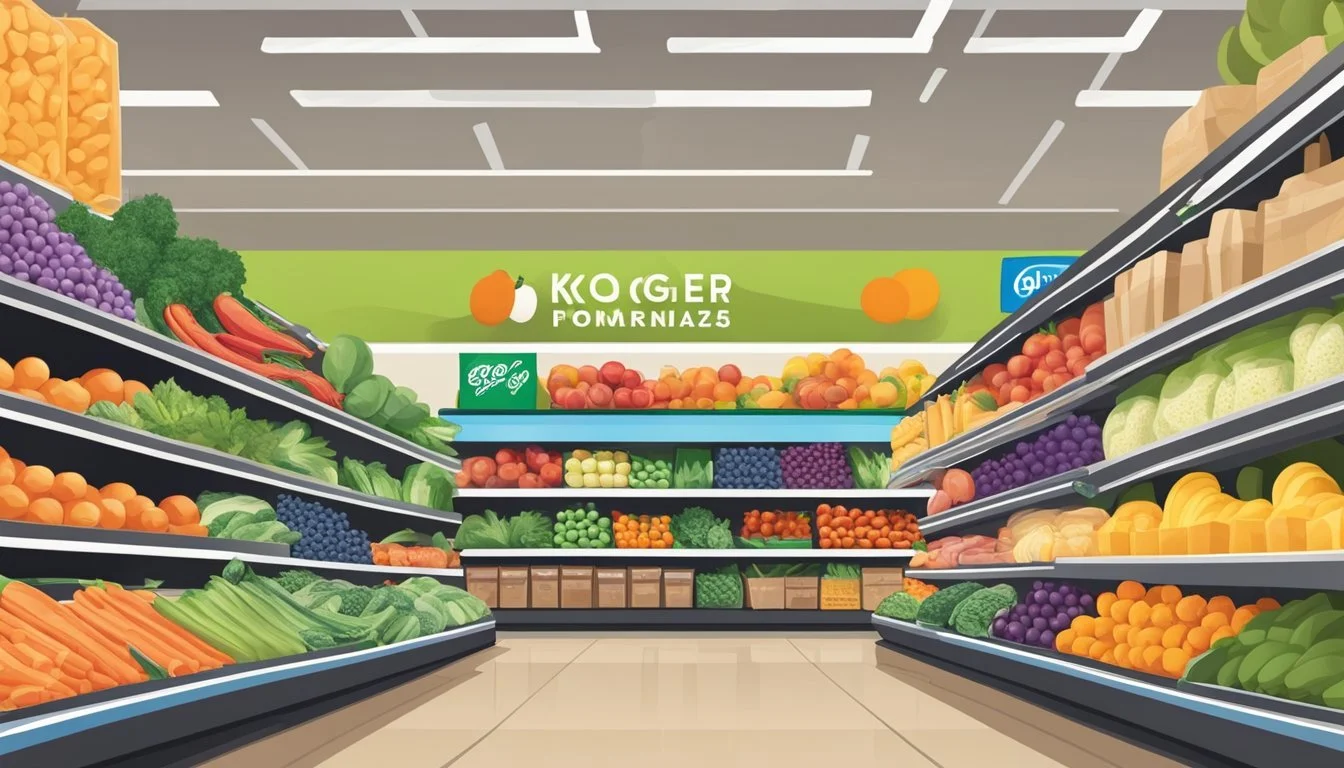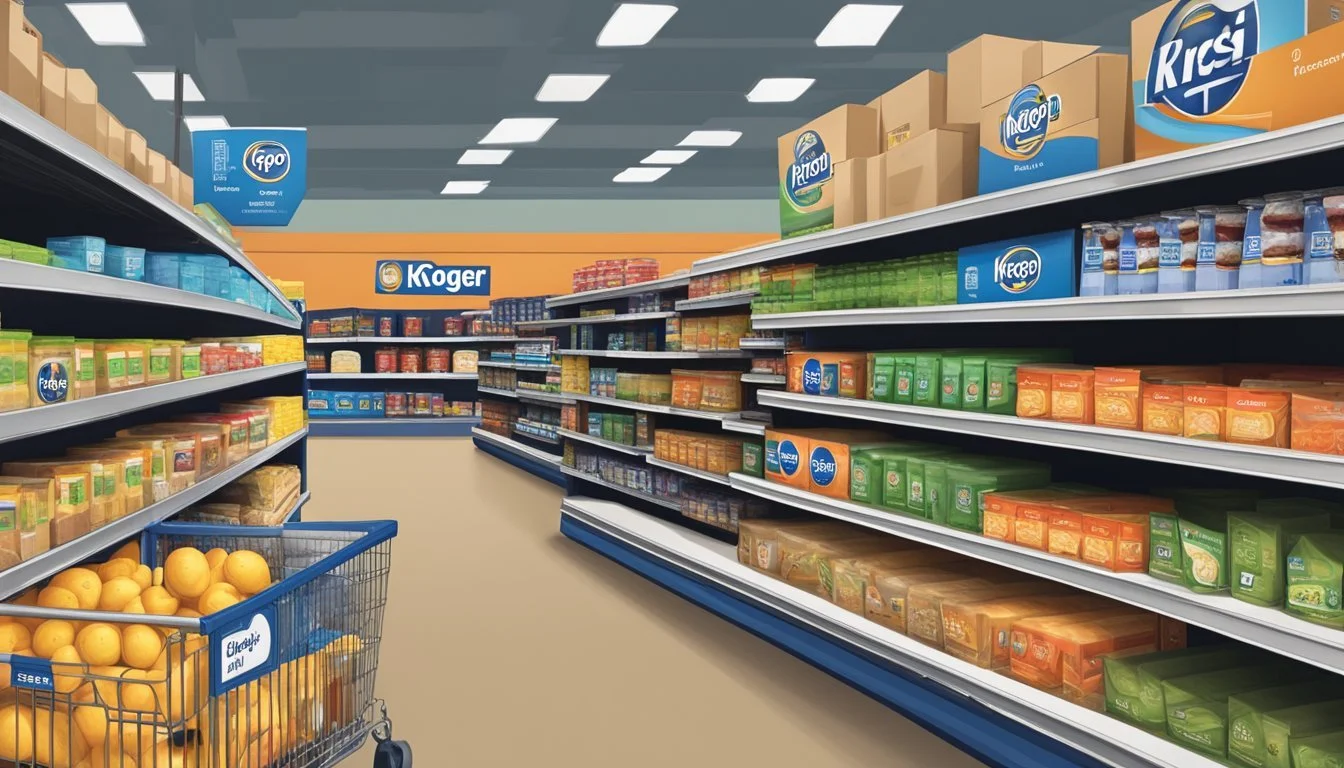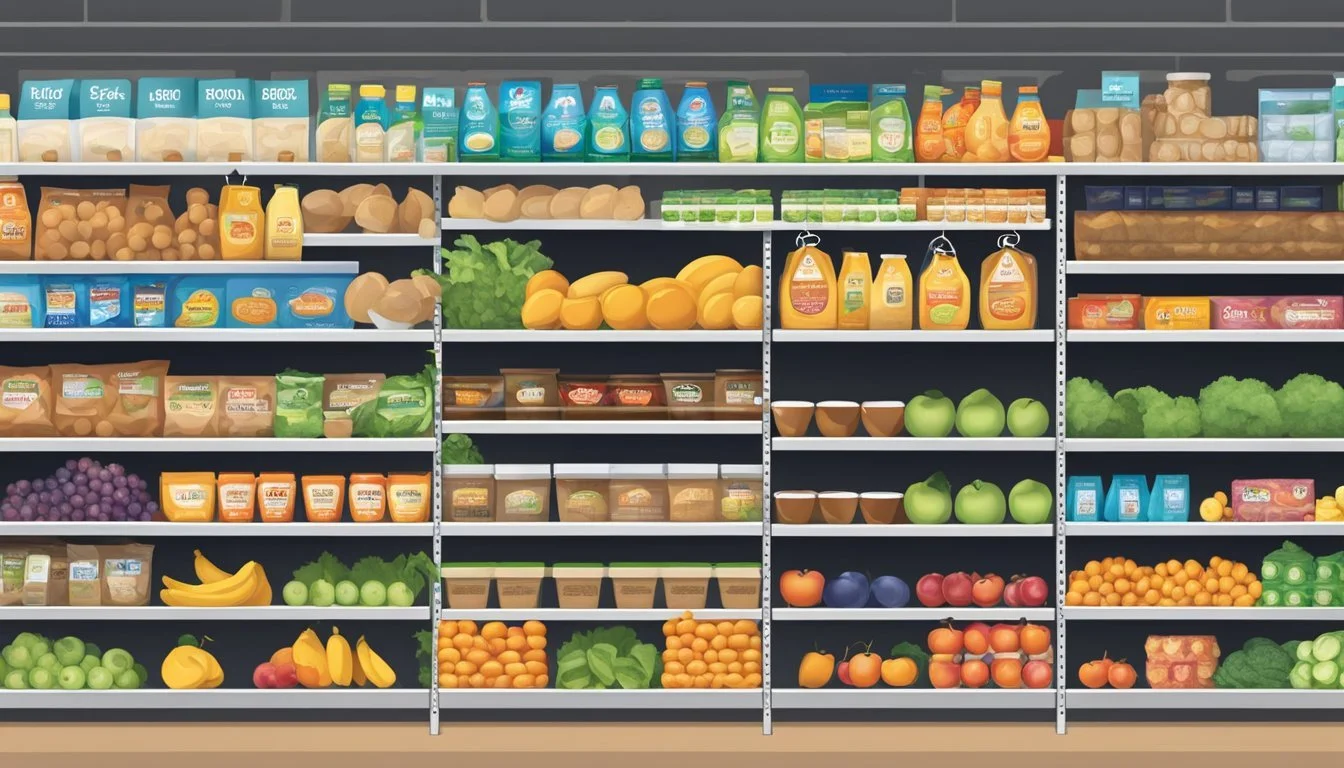Is Kroger Cheaper Than Aldi?
Comparing Prices to Save You Money
Part of Our Grocery Store Guide with Details on Kroger Prices and Aldi Prices
Choosing where to shop for groceries can significantly impact one's budget, and with the array of choices available, it can be challenging to determine which store offers the best prices. Kroger and Aldi are two prominent grocery chains that often come up in discussions about affordability. Customers are eager to understand which of these offers a better deal, as each store has its unique pricing strategies that cater to different shopping preferences.
Price comparisons between Kroger and Aldi show that the cost of goods can vary depending on the categories of items. For instance, Aldi tends to have lower prices on staples like bread, canned goods, and frozen items, whereas Kroger may offer more competitive rates on beverages, dairy, dry goods, personal care, and cleaning supplies. Additionally, while Aldi is recognized for higher product quality in certain areas, Kroger boasts a broader variety in its product selection.
Shoppers also weigh other factors like location convenience, product brands, and shopping experience. For consumers loyal to national brands, which Aldi carries less frequently, stores like Kroger and Walmart might be more appealing despite any small price differences. Ultimately, which store is cheaper can hinge on individual shopping lists and personal preferences as much as the price tags themselves.
Grocery Store Overview
Aldi and Kroger represent two distinct models within the grocery industry. Aldi operates as a discount supermarket chain, known for its cost-effectiveness and no-frills shopping experience. It offers a range of grocery items, primarily under its own private labels, leading to significant savings for customers. Aldi stores are typically smaller than traditional supermarkets and employ time- and resource-efficient practices, such as a cart rental system and a bring-your-own-bag policy.
On the other hand, Kroger is a large-scale traditional grocery store chain. It stands as one of the largest and most widespread supermarket retailers in the United States. Kroger provides a wide selection of items, including national brands and private labels. Their stores often feature a comprehensive range of products, from groceries to pharmacy services, and include amenities such as bakeries and delis.
Aspect Aldi Kroger Store Type Discount Supermarket Traditional Grocery Store Product Range Mostly private labels, fewer national brands Wide selection, including national brands Store Size Smaller Larger Amenities Fewer More, including bakeries, delis, pharmacies Pricing Generally lower pricing Competitive, varies on products
Each retailer caters to distinct consumer needs: Aldi appeals to bargain hunters and those willing to trade brand variety for lower costs, whereas Kroger attracts customers seeking variety, one-stop shopping, and specific brands. While Aldi's streamlined approach offers savings on a range of products, Kroger's diverse inventory provides ample choice at competitive prices.
Price Comparison Fundamentals
When consumers set out to determine if Kroger is cheaper than Aldi, they must consider the fundamentals of price comparison. This involves an analysis of unit price, which is the cost per standard unit of measurement, allowing for direct comparisons irrespective of package size or quantity.
A critical step is to examine the grocery bill as an aggregate of individual item costs. Shoppers often find savings in stores with lower overall bills, but individual items may vary in price. Cheapest or cheaper refers to the lowest prices on the market, but this designation can shift depending on the type of product being purchased.
An itemized approach helps consumers understand where their money has the most impact. Here's a general breakdown:
Category Store Likely to Offer Lower Price Bread & Bakery Aldi Dairy Varies Frozen Goods Aldi Personal Care Kroger Beverages Varies
An awareness of grocery stores' pricing strategies is fundamental. Aldi often presents itself as a discount grocer with a smaller product range, potentially leading to substantial savings on generic or store-brand items. Kroger, however, may provide a wider selection of brands and occasionally, lower prices on specific branded items.
Lastly, consumers striving to save money should utilize digital and paper coupons, weekly ads, and loyalty programs, which can significantly influence the lowest prices achievable.
By understanding these fundamentals, customers are better equipped to navigate the complexities of grocery shopping with confidence and financial acumen.
Produce and Fresh Foods
paring Kroger and Aldi, shoppers have noted differences in the cost and variety of produce and fresh foods. These differences are evident in the fruit variety, vegetable selection, and the offerings of fresh meat and seafood.
Fruit Variety
Kroger tends to offer a broader fruit variety, including both common and exotic options. Shoppers find everything from apples and bananas to more niche fruits like dragon fruit or starfruit. The selection at Aldi is more curated, focusing primarily on staple fruits, which typically include bananas, apples, and citrus options.
Vegetable Selection
In terms of vegetable selection, Kroger showcases a wide array of vegetables ranging from standard salad ingredients to organic and specialty options. Aldi, while maintaining a smaller selection, prioritizes the most commonly purchased vegetables, ensuring staples such as lettuce, tomatoes, and salad mixes are well-stocked, often at a lower price point.
Fresh Meat and Seafood
For fresh meat and seafood, Kroger's extensive variety is a highlight. It offers a range of cuts of beef, pork, and chicken, alongside an expansive seafood section. Aldi's meat selection is somewhat limited but generally focuses on affordability and the most popular cuts of meat. Quality is considered to be high at both retailers, however, Kroger may provide a greater selection for those looking for specific types or cuts of fresh meat.
Packaged and Dry Goods
In comparing Kroger and Aldi, one finds nuanced pricing distinctions across various categories of packaged and dry goods with specific variations observed in pantry staples, dairy and eggs, as well as frozen and canned goods.
Pantry Staples
When consumers consider pantry staples like rice and peanut butter, Aldi generally offers more competitive prices. Kroger, on the other hand, provides a wider selection which may appeal to shoppers seeking specialty items or particular brands.
Rice: Aldi's own brands typically come in at lower price points per pound compared to the national brands available at Kroger.
Peanut Butter: At Aldi, shoppers can often find better deals on peanut butter, particularly during sales or with store-brand options.
Dairy and Eggs
Dairy products, including cheese and eggs, show a price variation that leans in favor of Aldi for basic options. However, for a variety like mozzarella cheese or specialty dairy items, Kroger might offer a broader range which occasionally comes with discounts through loyalty programs.
Eggs: Standard cartons of eggs are often less expensive at Aldi.
Cheese: While Aldi provides cost-effective choices for cheeses including mozzarella, Kroger's variety often includes brand names which may be more expensive.
Frozen and Canned Goods
Aldi often outprices Kroger in the frozen and canned goods aisle, with items like frozen foods and diced tomatoes frequently hitting lower price points. Although, consumers should note that Kroger occasionally introduces significant savings via store cards or digital coupons.
Frozen Foods: Aldi tends to have lower base prices on everyday frozen goods.
Canned Goods: When comparing canned goods such as diced tomatoes, Aldi usually offers these staples at lower prices, although it's possible to find competitive pricing at Kroger during promotions.
Product Quality and Brands
When comparing Kroger and Aldi, consumers often weigh the quality of products and the brands available at each store. Understanding these factors can be crucial in deciding where to shop for groceries.
Store Brands
Kroger prides itself on an extensive selection of store brands that cater to a variety of tastes and budgets. Their store brands include a wide array of options, from the organic-focused "Simple Truth" line to the budget-friendly "Kroger Value". These brands often provide a cost-effective alternative to national brands without compromising on quality.
Aldi has become synonymous with high-quality store brands, often surpassing competitors in taste tests and customer satisfaction. Products from brands like "Baker’s Corner" and "Tuscan Garden" garner positive reviews for their quality, while snack options from "Clancy’s" offer competitive pricing and taste. Aldi’s model focuses heavily on their store brands, which allows them to keep prices low by avoiding the additional cost of stocking national brands.
National Brands
Kroger offers a vast array of national brands, ensuring that customers have access to familiar products they know and trust. Shoppers seeking products from well-known companies like "Land O Lakes" will find these alongside Kroger's own store brands, giving them a broader selection to choose from.
Aldi, on the other hand, carries a more limited selection of national brands. The retailer strategically stocks these products, mainly when they can offer them at a price point that aligns with Aldi’s low-cost philosophy. While shoppers may find some national brands, the focus is significantly more on their proprietary brands, which dominate the shelves.
Promotions and Savings Opportunities
When comparing Kroger to Aldi, understanding how each store facilitates savings through promotions, discounts, coupons, and loyalty programs is essential for consumers aiming to manage their grocery budgets effectively.
Sales and Discounts
Kroger frequently rotates items on sale, giving shoppers opportunities to save money on various products weekly. They often mark down perishables like meat or bakery items to sell them quickly before the expiration date, sometimes cutting the original prices by more than half. In contrast, Aldi's discounts are less regular but they offset this by keeping their everyday prices generally lower. The absence of frequent sales campaigns aligns with Aldi's business model of simplicity and low overhead costs.
Coupons and Loyalty Programs
Kroger's loyalty program offers tailored coupons and fuel points based on individual shopping patterns. Shoppers can load digital coupons directly onto their loyalty card, providing instant savings at checkout. Additionally, Kroger's app not only facilitates easier coupon management but also occasional exclusive app-only deals.
Aldi, on the other hand, does not offer a traditional loyalty program or coupons, as their business model focuses on everyday low pricing instead. Aldi's strategy ensures their prices for most items remain inherently competitive without the need for additional savings mechanisms. However, they occasionally run Special Buys or Aldi Finds, which are temporary discounts on select items, ranging from groceries to household goods.
Shopping Experience Factors
When considering whether Kroger is cheaper than Aldi, a shopper's overall experience is influenced by more than just the prices. Factors such as store locations, shopping ambiance, and customer service play a crucial role in shaping the experience.
Store Locations
Kroger boasts a large number of stores across the United States, offering convenience for shoppers who have a Kroger in close proximity. This easy accessibility can potentially reduce travel time and cost for customers, effectively contributing to overall savings. On the other hand, Aldi, while expanding, may have fewer locations, which could influence a customer's ability to take advantage of their lower prices.
Shopping Ambiance
Shoppers typically find that Aldi offers a no-frills, simple shopping environment focused on cost-saving. The store layout is straightforward, and Aldi does this to keep overhead costs low, which may appeal to those who prioritize efficiency and lower prices. In contrast, Kroger often provides a more traditional and spacious supermarket experience, with wide aisles, a larger variety of brands, and additional amenities, which might be preferable to those who value comfort and variety during their shopping journey.
Customer Service
Customer service can significantly impact the shopping experience. Kroger is known for investing in customer service, including offerings like loyalty cards and coupon programs, which can enhance savings and customer satisfaction. They may also have more staff available to assist customers. Aldi, while usually staffed leaner to maintain low prices, generally still receives positive reviews for customer service. Its efficient checkout process is often recognized, though some shoppers might miss the personal touch of a larger staff.
Comparing Kroger and Aldi
In examining the grocery prices between Kroger and Aldi, shoppers will find variances across different categories that can impact their overall grocery budget.
Price Analysis by Categories
Beverages, Dairy, Dry Goods, Personal Care, and Cleaners:
Kroger: Offers competitive pricing, being anywhere from 1% to 22% less expensive than Aldi in these specific categories.
Bread, Canned Goods, and Frozen Goods:
Aldi: Provides better value here, with prices 6% to 40% lower than Kroger for these items, indicating that they could be the winner for shoppers focusing on these categories.
Overall Shopping Costs
When considering the total grocery bill:
Kroger: One review shows a total of $87.09, marginally lower than Aldi by about 3% or $2.26.
Aldi: Came close with a total shopping cost of $89.35, but has been found to beat out other competitors like Walmart in some comparisons, maintaining a strong position for budget-conscious consumers.
Additional Considerations
While assessing grocery store pricing, consumers often evaluate holistic shopping experiences beyond the price tag. Factors such as shopping efficiency, online engagement, and community initiatives can influence customer loyalty and satisfaction.
Shopping Efficiency
Shoppers tend to value their time and convenience. Kroger offers a larger selection, which means customers may find everything on their list in one trip, potentially reducing shopping time. In contrast, Aldi's smaller selection can lead to a more straightforward and quicker shopping experience, as there are fewer options to sift through. The layout of each store is designed to maximize shopping efficiency, with Aldi often utilizing a no-frills layout and Kroger offering a more traditional supermarket setup.
Online Presence
The online presence of a grocery store can greatly enhance shopping convenience. Kroger boasts a robust website with features like digital coupons, online shopping lists, and grocery delivery options. Aldi is improving its online services as well, but Kroger has a more mature online platform. Additionally, both retailers have embraced social media platforms such as Facebook. Customer comments and reviews often provide insights on the efficiency of online services, with Kroger typically receiving positive feedback for its user-friendly website and app.
Community Engagement
Grocery stores are increasingly involved in their local communities. Kroger's community engagement initiatives cover a broad spectrum, from sponsoring local events to implementing sustainability projects. Aldi also participates in community engagement efforts, albeit on a smaller scale. The impact of a store's presence in the community can indirectly affect a shopper's preference and should be considered along with pricing and efficiency when choosing where to shop.
External Influence and Competition
The pricing competition in the grocery sector is heavily influenced by key players such as Walmart and Amazon, reshaping the landscape for chains like Kroger and Aldi. The presence of these retail giants has prompted a strategic pricing response to maintain market share.
Comparison with Walmart
Walmart is a major competitor across a broad range of categories, often benchmarked against by other grocery stores for price comparison. Kroger positions itself as a competitor by offering a diverse selection of products, despite being occasionally outpriced by Walmart.
Bread, Dairy, Dry Goods: Kroger competes closely with Walmart on these items, sometimes offering lower prices.
Product Variety: Kroger transcends Walmart in the range of products offered, catering to a wider consumer base.
Impact of Amazon and Other Retailers
The entrance of Amazon into the grocery market through the acquisition of Whole Foods has underscored the importance of competitive pricing and the expansion of digital retailing.
Online Presence: Retailers like Kroger enhance their e-commerce platforms to compete with Amazon's online dominance.
Retailer of the Year: Recognition in this category often factors in a retailer's adaptability and innovation, areas where Amazon excels.
Other significant grocery store chains such as Target and Publix also contribute to the competitive environment, requiring Kroger to remain flexible and strategically priced.
Target and Publix: Their emphasis on customer experience and product niche affects Kroger's market approach.
Through strategic pricing and product selection, Kroger and Aldi continue to navigate a market proliferated by powerful retailers like Walmart and influenced by innovative giants like Amazon.
Consumer Strategies
Maximizing savings at Kroger as compared to Aldi largely depends on strategic planning and understanding each store's offerings. Consumers can significantly reduce their grocery expenses through effective budgeting and taking advantage of specific discounts and offers provided by these stores.
Effective Budgeting and Shopping
Engaging in effective budgeting starts with a well-thought-out meal plan which helps in creating a focused grocery list. Shoppers who align their meal plans with their grocery budgets are less likely to make impulsive purchases that can inflate their total at the register. Kroger's wide variety allows for a diversified meal plan, but shoppers should remain vigilant to avoid overspending due to this variety. On the other hand, Aldi's bare-bones approach to stocking may lead to less temptation, simplifying shopping decisions and helping shoppers stay within budget.
Meal Planning: Align meals with sales and seasonal produce
Grocery Budget: Set clear limits based on weekly or monthly income
Leveraging Discounts and Offers
Shoppers can also employ strategies such as extreme couponing to tap into Kroger's robust discount program, which includes digital coupons and a store savings card. Keeping a keen eye on offers through Kroger's app or weekly flyers can lead to substantial savings. While Aldi does not accept traditional manufacturer coupons, its already lower prices on many items can be beneficial for consumers who have a tight grocery budget and prefer a straightforward, lower-cost option without the need for couponing.
Kroger's Discounts: Use digital coupons and the store card
Aldi's Approach: Benefit from consistently low prices without coupons
Additionally, customers looking to reduce their shopping bills at Aldi or Kroger could consider cutting expenses by opting to bag their own groceries, which is a practice at Aldi that aligns with the cost-saving culture. By combining these strategies with savvy shopping techniques, consumers can effectively curtail their spending while still enjoying a diverse selection of goods.
Conclusion
When comparing prices and quality between Kroger and Aldi, consumers will find noticeable differences. Aldi generally offers lower prices for specific categories such as bread, canned goods, and frozen goods, with savings reported between 6% to 40%. It also maintains higher product quality for some items, adhering to FDA standards.
Kroger, on the other hand, presents a competitive edge in beverages, dairy, dry goods, personal care, and cleaners, with prices purportedly 1% to 22% cheaper. It's also important to note Kroger's wider variety of products, which can be a significant factor for shoppers seeking a one-stop shopping experience.
Despite these points, individual experiences may vary. For some shoppers, Kroger came out slightly cheaper overall, while for others, Aldi held the leading position in terms of cost-effectiveness. Store loyalty programs, like the Kroger Plus Card, can further influence final pricing, often making Kroger more competitive.
Shoppers should consider their personal shopping preferences—price sensitivity, product quality, variety, and location conveniences. With the varying price points across different categories at both stores, informed decisions require a blend of one's budget priorities and the shopping experience they seek.









